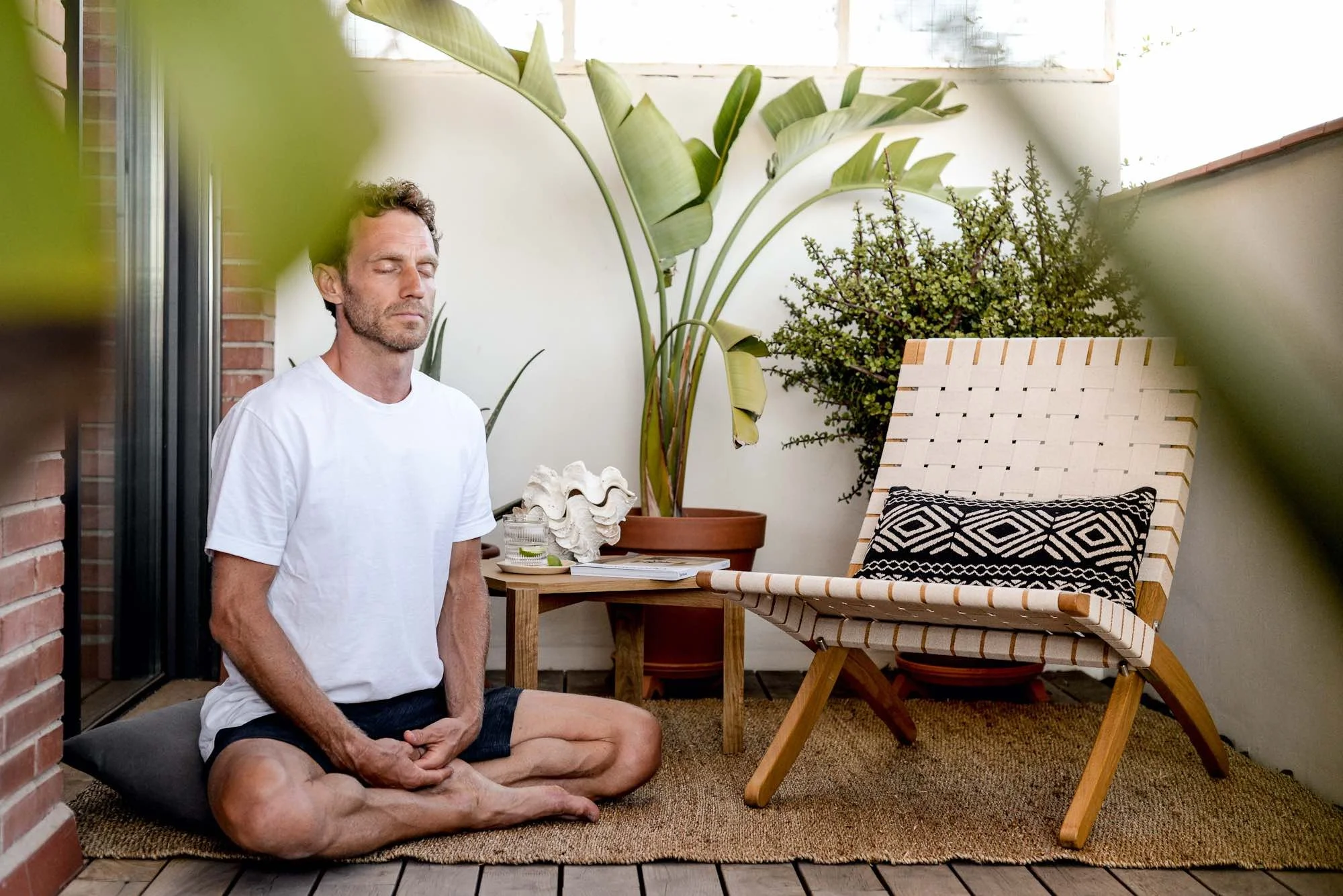How Ritualizing Bathing Can Help with Emotional Regulation

The Therapeutic Benefits of Bathing Rituals
Bathing, while often perceived merely as an aspect of personal hygiene, transcends its superficial function when it incorporates ritualistic elements. In countries with rich cultural traditions like Nigeria, bathing can evoke a profound sense of calm and introspection, making it a cornerstone of emotional well-being. This transformation of a simple routine into a therapeutic practice is rooted deeply in communal and historical contexts, emphasizing its significance in daily life.
Mindfulness as a Key Component
At its core, ritualized bathing promotes mindfulness. By immersing oneself in the experience of water—feeling its temperature against the skin, paying attention to the sound of water flowing, and even enjoying scents from natural soaps—the mind is drawn to the present moment. This practice trains individuals to appreciate mundane sensations, fostering present-moment awareness. In a bustling city like Lagos, where the chaos of street vendors, honking cars, and crowded markets can cause mental overload, a focused bathing ritual acts as a meditative escape.
Cleansing Beyond the Surface
Moreover, the cleansing effects of bathing are not confined to physical dirt but extend to emotional and psychological realms. Many people in Nigeria combine bathing with the use of local herbs or essential oils known for their calming properties, such as lavender or eucalyptus. This duality of cleansing brings about emotional purification, assisting in the release of stress and anxiety. Consequently, individuals often feel rejuvenated, allowing them to face the world with renewed energy and perspective.
Cultural Connections and Spirituality
In numerous Nigerian cultures, bathing is steeped in tradition and often viewed as a spiritual practice. For example, the Yoruba people engage in rituals that include purification baths before festivals or religious ceremonies, underscoring the significant connection between bathing and spiritual cleansing. This aspect of connection to tradition fosters a feeling of belonging and continuity, linking the present generation with their ancestors.
Creating a Space for Reflection
In the midst of life’s complexities, particularly in the fast-paced environments of major Nigerian cities like Abuja and Port Harcourt, the ritual of bathing becomes an essential tool for emotional regulation. As individuals carve out this time for themselves, they can reflect on their daily experiences—the highs, the lows, and everything in between. This conscious act of engaging with the senses through a carefully curated bathing routine encourages self-awareness and emotional resilience.

Practical Tips for Incorporating Ritualized Bathing
The idea of ritualized bathing can be easily included in anyone’s daily schedule. Start by dedicating a specific time for this practice, transforming it into an unmissable self-care ritual. Choose soothing music or natural sounds to enhance the experience, and consider using elements that resonate with your cultural background, such as traditional scrubs or herbs. By doing so, individuals can foster greater emotional balance and promote overall well-being across the spectrum of their daily lives.
In conclusion, embracing the ritualized practice of bathing not only enriches the act of cleaning oneself but also serves as a pathway to deeper emotional and spiritual health. In a world where stress often prevails, it offers a cherished moment of pause and reflection, inviting individuals to embark on their journey towards holistic wellness.
ADDITIONAL INSIGHTS: Expand your understanding here
Delving Into the Emotional Waters: The Science Behind Bathing Rituals
The act of bathing has been recognized not just for its hygiene benefits, but also for its profound impact on emotional well-being. Scientific studies have begun to validate what many cultures, including those in Nigeria, have long understood: there is a significant link between bathing rituals and enhanced emotional regulation. Bathing is not merely a physical cleanse; it represents a holistic approach to mental health.
The Release of Stress through Water
Water has been shown to possess natural calming properties. When immersed, individuals often find a sense of relief from the burdens of daily stress. This is no coincidence; several studies highlight that taking a bath can decrease levels of the stress hormone cortisol. For many Nigerians who navigate overwhelming urban environments, the tranquility generated by water can act as a sanctuary, allowing for emotional release and rejuvenation.
Enhancing the Ritual with Intentional Practices
Creating a ritual around bathing involves integrating intentional practices that deepen the experience. Here are some ways to elevate your bathing routine into a mindful ritual:
- Set the Ambiance: Dimming the lights or lighting candles can help create a serene atmosphere conducive to reflection.
- Incorporate Aromatherapy: Using essential oils or traditional herbal infusions can heighten sensory experiences, uplifting moods and promoting relaxation.
- Add Natural Elements: Consider incorporating natural elements like stones or plants, which can enhance feelings of connection to nature and grounding.
- Breathwork: Focusing on your breath during bathing can cultivate mindfulness, reinforcing a state of calm and presence.
Through these enhancements, the act of bathing evolves from a routine task into a cherished sanctuary. Engaging in these intentional practices across a spectrum of emotional states helps people in Nigeria to articulate their feelings, recognize distortions in thoughts, and manage responses in a healthier manner.
The Role of Community and Family
The communal aspect of bathing rituals cannot be overlooked. In some cultures, sharing a bathing space with family or friends reinforces bonds and allows for emotional conversations. Especially in Nigerian families, where relationships are paramount, gathering for a communal wash can offer a sense of support. Engaging with loved ones during these moments can foster an environment where emotional expression is encouraged and validated, aiding in the process of emotional regulation.
As we explore these elements further, it becomes clear that ritualized bathing is not simply about cleanliness; it provides a unique framework for emotional engagement and growth. The blending of cultural practices with personal rituals enriches the experience, turning an everyday activity into a profound journey of self-discovery and emotional resilience.
| Therapeutic Benefits | Ritualization Effects |
|---|---|
| Enhances Self-Awareness | Encourages Presence in the Moment |
| Promotes Relaxation | Creates a Safe Space for Emotions |
| Reduces Anxiety | Establishes Routine and Predictability |
Ritualizing bathing can serve as a pivotal tool for emotional regulation. When individuals engage in this therapeutic practice, they often find that it enhances self-awareness. The act of bathing becomes more than just a physical cleanse; it encourages a reflection on one’s own feelings and sensations, fostering a deeper understanding of emotional states.Moreover, a ritualistic approach to bathing inherently promotes relaxation. The consistent use of warm water, calming scents, and soothing music creates an environment that invites tranquility. This safe haven allows individuals to process their emotions without external distractions.Another key advantage lies in its ability to reduce anxiety. By establishing a predictable routine, the bathing ritual becomes an anchor point amid life’s unpredictability. The familiarity of this practice can effectively ground a person, making it easier to manage stress and emotional fluctuations. Exploring how these factors interplay can lead to a more profound appreciation for the healing aspects of bathing rituals in daily life.
CHECK OUT: Click here to explore more
Transformative Baths: A Gateway to Emotional Clarity
When we delve deeper into the relationship between ritualized bathing and emotional regulation, it becomes evident that these practices can contribute to improved mental clarity. The soothing properties of warm water not only help in alleviating anxiety but also serve as a powerful medium for reflection. For many Nigerians, who often face a barrage of daily life challenges, taking a moment of solitude in the tub can lead to significant revelations and emotional insights.
The Mind-Body Connection in Bathing
The connection between mind and body is crucial in understanding how bathing impacts emotional health. When immersing oneself in water, the body begins to relax, which allows the mind to follow suit. Physical sensations, such as the warmth of the water, can prompt the release of neurotransmitters like serotonin and dopamine, which are vital for mood regulation. This physiological response can help individuals better address their feelings and thoughts, transforming bathing into a therapeutic practice rather than just a routine.
Using Bathing as a Tool for Enhanced Self-Awareness
Another significant aspect of ritualized bathing is its ability to heighten self-awareness. Many people find that soaking in a tub provides the perfect backdrop for introspection and meditation. By intentionally setting aside time for oneself in a serene environment, bathers can process emotions, confront lingering pain, or simply appreciate the present moment. Incorporating elements such as journaling or expressive poetry during or after a bath can further elevate this experience.
- Reflective Journaling: Bringing a notebook into the bathroom can encourage you to jot down thoughts and reflections that arise.
- Music and Sound: Playing calming music or even nature sounds can amplify relaxation, encouraging a deeper connection to your emotions.
- Guided Meditations: Utilizing audio guided meditations focused on compassion and self-kindness can enhance emotional understanding while bathing.
This combination of self-reflection and emotional awareness becomes increasingly crucial within the fast-paced Nigerian urban lifestyle, where the noise of daily activities often drowns out inner feelings. By ritualizing bathing, individuals can carve out an oasis of calm within the chaos, greatly assisting in emotional regulation.
Cultural Significance and Personal Growth
In Nigerian culture, where communal experiences are integral to emotional health, the significance of bathing rituals can be amplified by family traditions. The shared act of bathing among family members or close friends can promote collective healing and emotional growth. Communities often gather for cleansing baths during significant life events, fostering a sense of unity. This practice reinforces the idea that vulnerability is not to be feared but embraced as a crucial part of the human experience.
Ritualized bathing can, therefore, serve as a microcosm for broader cultural practices, anchoring individuals emotionally in a way that enhances their overall resilience. As these practices are passed down through generations, they can empower individuals to navigate their emotional landscapes more effectively, ensuring that cultural heritage plays an active role in contemporary emotional regulation strategies.
This intricate web of personal, communal, and cultural elements surrounding ritual bathing not only nurtures the body but cultivates emotional strength, encouraging individuals to engage seriously with both their feelings and their communities.
CHECK OUT: Click here to explore more
Conclusion: Embracing the Healing Power of Ritualized Bathing
As we reflect on the profound interplay between ritualized bathing and emotional regulation, it becomes clear that such practices offer individuals a pathway to transformative self-care. The act of immersing oneself in water not only provides a calming physical sensation but also serves as a conduit for deeper emotional understanding. Through ritualized bathing, individuals stand to cultivate a space for introspection and enhanced self-awareness, essential components for navigating the complexities of modern life, particularly within the bustling context of Nigeria.
Incorporating mindful practices such as journaling, meditative sounds, or shared rituals can amplify the emotional benefits derived from bathing, turning an ordinary routine into a deeply restorative experience. These rituals not only enhance personal well-being but also foster a sense of community, uniting families and friends through shared cultural traditions. The collective embrace of vulnerability within these practices reinforces the notion that engaging with our emotions can lead to greater personal resilience and communal strength.
As this article underscores, ritualized bathing transcends mere cleansing; it evolves into a multifaceted approach to emotional health that is both culturally significant and profoundly personal. By taking time to engage in these practices, individuals not only honor their heritage but also equip themselves to face life’s challenges with renewed clarity and strength. Embracing the art of ritualized bathing could very well be a key to unlocking emotional equilibrium in our fast-paced world.


